Study Abroad in Barcelona
- Spring 2026
- Date: Jan 16 – Apr 11, 2026
- Apply By: November 17, 2025
Time Left:
- Summer 2026
- Cohort 1: May 31 – June 27, 2026
- Apply by: April 01, 2026 (Cohort 1)
Time Left:
- Summer 2026
- Cohort 2: July 03 – August 01, 2026
- Apply by: May 04, 2026 (Cohort 2)
Time Left:
Why Study Abroad in Barcelona?
Spain has actively committed to implementation of the UN Sustainable Development Goals (SDGs), with a focus on prioritizing actions towards goals like SDG 3 (health), 6 (clean water), 7 (affordable energy), 11 (sustainable cities), 12 (responsible consumption), 13 (climate action), 14 & 15 (life below water and on land), and a particular emphasis on sustainable energy and water management initiatives.
Barcelona has proven itself a leader in the implementation of the SDGs, ranking first in SDG 11 (making cities and human settlements inclusive, safe, resilient, and sustainable) and SDG 17 (strengthening partnerships to achieve the goals). This reflects Barcelona’s commitment to creating a sustainable urban environment and fostering global collaboration to achieve the SDGs.
With its youthful, vibrant, Mediterranean culture and entrepreneurial spirit, Barcelona offers an ideal venue for the intersection of sustainability and career development. Though coursework, co-curriculars, and professional development, students can leverage their time in Barcelona to cultivate skills for a global workforce and a deep understanding of and engagement with critical global issues.
Curriculum
School of Record:
Authentica courses are transcripted by our School of Record, Florida Agricultural & Mechanical University (FAMU).
Carnegie Rule:
Authentica follows the 2:1 Carnegie Rule for outside-of-class work: students are expected to spend roughly two hours studying and completing assignments out of class for every hour spent in class.
Summer (6 credits)
- Innovation in Action: Project-Based Learning - 3 credits
- Sustainable Development in Context: Spain - 3 credits
Semester (12-15 credits)
- Internship or Innovation in Action: Project-Based Learning - 3 credits (Required)
- Sustainable Development in Context: Spain - 3 credits (Required)
- Language & Electives - 6-9 credits
Course Descriptions
The United Nations Sustainable Development Goals (UN SDGs) offer a roadmap for a global future that promotes human flourishing and healthy ecosystems. They are multidisciplinary in nature, spanning human rights, public health, education, gender, economics, energy, urban design, and ecology. Though the SDGs are global in their aim and vision, how they are engaged and achieved varies according to national and regional factors. Using Barcelona as classroom and case study, this course examines the aspirations and realities of the UN SDGs through the lens of Spain and the greater European context. Through lectures, field visits, and project work, students engage deeply with both theoretical frameworks and practical applications related to sustainable development, developing their analytical, research, and practical problem-solving skills and preparing them to engage effectively with the global sustainability agenda.
Innovation in Action: Project-Based Learning (PBL) is a hands-on course designed to explore the emerging field of social entrepreneurship and innovation while fostering creativity, critical thinking, and problem-solving skills. This course will provide a comprehensive overview of how innovation drives sustainable and impactful solutions to social and environmental problems. Through real-world, team-based projects, students will engage with innovation in three essential contexts: the public, private, and citizen sectors, social enterprises (nonprofit, for-profit, and hybrid models), and social transformation across entire systems. Students will have the opportunity to apply theories and methodologies learned through prior coursework and their experience abroad, developing practical solutions that foster social change on local, national, and international levels.
Electives
The following electives are intended to cover a wide range of disciplines while maintaining a focus on sustainability. If you need other courses in order to progress towards your degree, please reach out to your Student Services Advisor. Direct-enroll options are also available with our host institutions that can fulfill specific degree requirements.
This course explores Spanish culinary culture, focusing on the principles of sustainability, local food traditions, and ethical consumerism. Through lectures, field visits, and interactions with local producers Students will examine how traditional Spanish culinary culture promotes good, clean, and fair food, emphasizing the preservation of local agricultural practices, biodiversity, and the cultural significance of food.
Key Topics:
- History and development of Spanish culinary culture
- Sustainability, local economies, and food production
- The preservation of Spain’s culinary traditions and regional cuisines
- Food policy and Spanish influences on global food movements
- Challenges and opportunities for traditional culinary culture in the modern world
Learning Outcomes:
By the end of the course, students will gain a deeper understanding of traditional Spanish
culinary culture, how it connects with sustainability and community, and how it influences
both local and global food systems
Course Description:
This course will focus on how Spanish cities such as Barcelona are integrating sustainability into urban planning, transportation, and green building practices. Students will examine real-world case studies of how Spanish cities are addressing issues like air quality, waste management, and sustainable tourism.
Key Topics:
- Green architecture and eco-friendly design in Spanish cities
- Sustainable transportation systems in Barcelona
- Urban regeneration and smart city initiatives
- Managing tourism impacts in historic cities
- The role of Spanish municipalities in climate resilience
Fieldwork:
Walking tours of eco-friendly urban projects
With its rich biodiversity and national parks, Spain is a hotspot for eco-tourism. This course will dive into the intersection of sustainable tourism and environmental conservation in Spain’s protected areas. Students will explore how eco-tourism can help preserve these natural treasures while benefiting local communities.
Key Topics:
- Principles of eco-tourism and sustainable travel
- Conservation efforts in Spain’s natural parks
- Balancing tourism growth with environmental protection
- Community engagement in sustainable tourism initiatives
- The impact of climate change on Spain’s natural habitats
Fieldwork:
- Study visits to national parks and eco-tourism villages.
Course Description:
Spain has a distinctive flair in fashion and design, but the industry also faces increasing pressure to address environmental and social sustainability. This course will explore how Spanish fashion and design houses and small artisans are adapting to sustainability trends through ethical production, sustainable materials, and eco-conscious consumerism.
Key Topics:
- Sustainable fashion trends in Spain
- The role of Spanish brands in environmental and social responsibility
- Materials innovation in Spanish fashion
- Slow fashion vs. fast fashion
- The impact of textile waste on the environment
Fieldwork:
- Visits to sustainable fashion brands or artisan workshops in Barcelona.
Course Description:
This course will explore the principles of the circular economy, focusing on how Spain is applying these principles in industries ranging from manufacturing to waste management. Spain has been a leader in circular practices, particularly in cities like Barcelona, which hosts a global summit on the circular economy. Students will analyze the economic, social, and environmental impacts of circular business models in Spain.
Key Topics:
- Introduction to the circular economy model
- Case studies of circular economy initiatives in Spain (e.g., fashion, plastic recycling)
- The role of Spanish design in circular product development
- Circular economy in the food and beverage sectors
- Policy frameworks for promoting circularity in Spain
Fieldwork:
- Visits to recycling plants or businesses with circular models in Barcelona.
This course will delve into the political aspects of sustainability in Spain, examining how local, regional, and national governments are creating policies to address climate change, environmental protection, and sustainable development. Students will study Spain’s role in the European Union’s Green Deal and its influence on global environmental policies.
Key Topics:
- Spain’s role in the European Union’s sustainability agenda
- Government policies on climate change, renewable energy, and carbon emissions
- The Spanish approach to environmental justice and social equity
- Green public procurement and government-led sustainability projects
- The intersection of politics and sustainability in local regions (e.g., Catalunya’s
green initiatives)
Fieldwork:
- Meetings with policymakers and environmental NGOs.
Spain has made strides in renewable energy development, particularly in solar and wind power. This course will examine Spain’s energy transition, focusing on the challenges and opportunities in adopting sustainable energy practices. Students will explore the technological, economic, and social aspects of Spain’s renewable energy projects.
Key Topics:
- The renewable energy landscape in Spain (solar, wind, hydro, and geothermal)
- Spain’s energy policy and climate goals
- Energy storage and smart grid technology
- Local energy cooperatives and decentralized energy systems
- The impact of renewable energy on local communities and industries
Fieldwork:
Site visits to renewable energy plants.
Spain’s rich cultural heritage faces increasing threats from climate change, urbanization, and tourism. This course will explore how Spain is addressing the sustainability of cultural heritage and historic preservation, balancing environmental challenges with the need to protect its ancient sites.
Key Topics:
- Climate change impacts on Spain’s cultural heritage
- Sustainable tourism and its effects on heritage sites
- The role of technology in preserving Spanish cultural sites
- UNESCO World Heritage sites and sustainable management
- Community-driven preservation efforts in Spanish villages
Fieldwork:
- Visits to heritage sites undergoing preservation work
Language
Language learning is essential for cultural immersion and building a deeper connection to the local community. Students in non-English speaking location will complete language training to enhance their experience.
Where You'll Stay
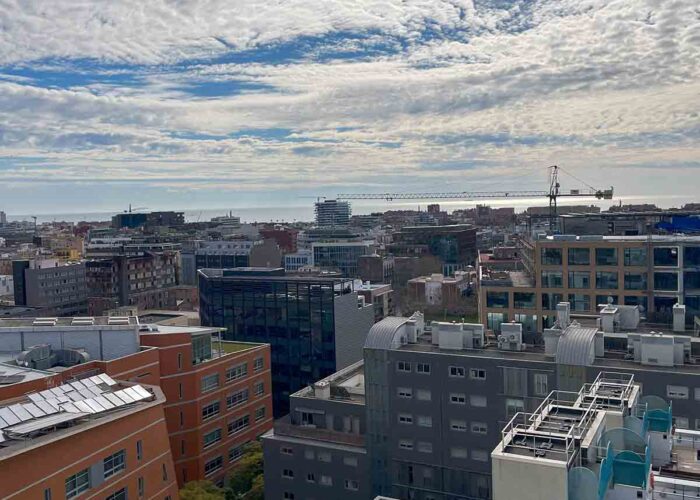
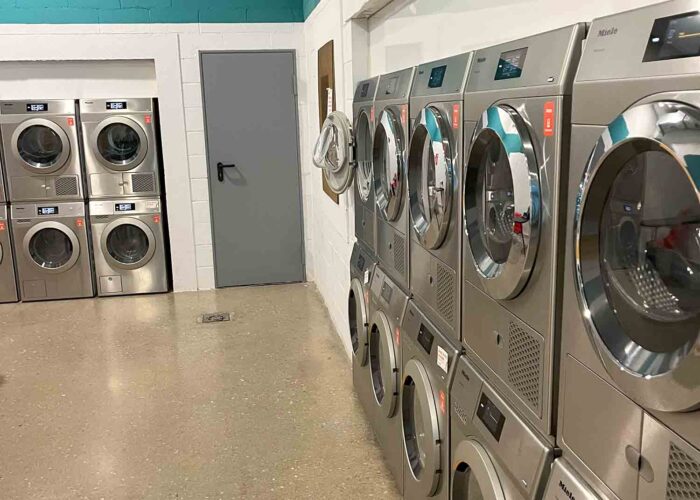
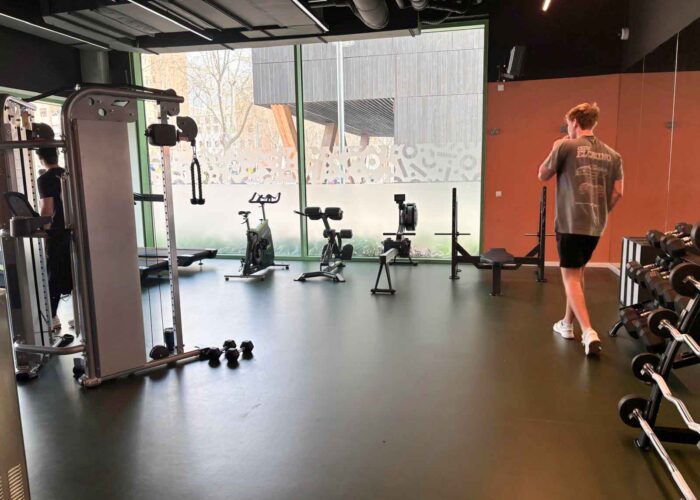
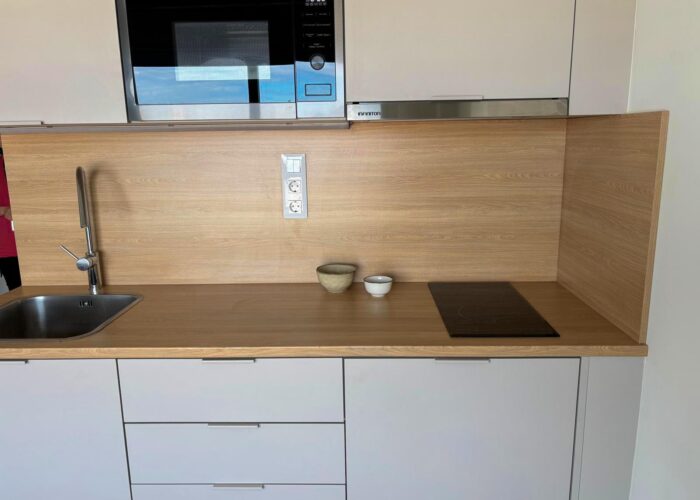
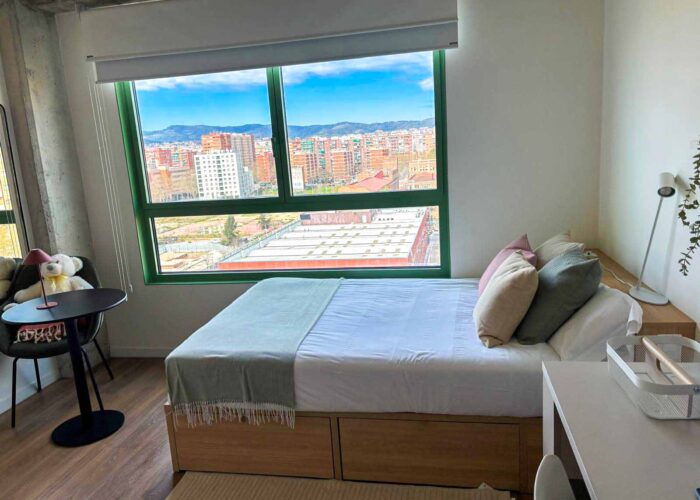
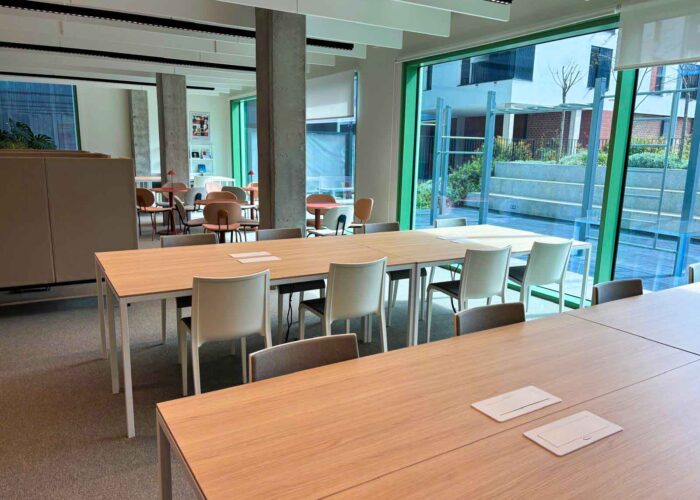
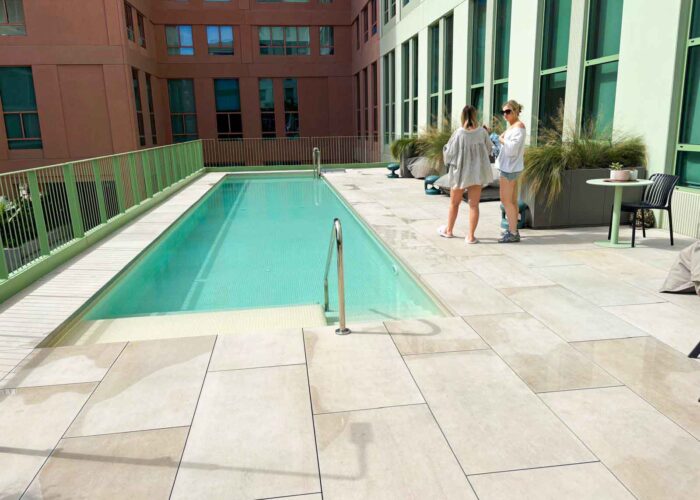
Accommodation sample images
You will be living within 45 minutes walking distance or 20 minutes by public transport from your housing to your school.
You will stay in a shared apartment or student residence.
Co-Curriculum
To enhance and enrich the formal curriculum, we offer a robust slate of co-curricular programming focusing on SDGs, professional development, and experiential learning. Field visits in and around the city expose students to SDG-related issues, organizations, and initiatives they would not otherwise have access to. Workshops, seminars, volunteering, and networking events focus on sustainable business practices and professional development skills. This co-curriculum is crafted to enrich students’ understanding of critical global issues while preparing them for the workforce.
Co-Curricular Activities
1) Mirador Torre Glòries – Enjoy the view of Barcelona – Mirador Torre Glòries
Experience a 360º view of the city from the Observation Desk at Torre Glòries, crowned by the installation Cloud Cities by Argentinian artist Tomás Saraceno, and visit the Hiperview Barcelona artistic installation: a representation of the ecosystems, infrastructures and technologies that interact in our 21st century to turn Barcelona into a sustainable city.
2) Barcelona Design Museum – Disseny Hub Barcelona
Visit the permanent collection, displayed through the exhibition Matter Matters, a journey through the history of design and an analysis of contemporary challenges faced by designers to reach carbon neutrality by 2050.
3) Barcelona Museum of Natural Science – Home | Museu de Ciències Naturals de Barcelona
Visit the permanent exhibition Planet Life, which explores the interaction between physical and chemical environments and human beings, while contemplating the UN Sustainable Development Goals.
4) Boquería Market – Boqueria Market Barcelona
Touring the most famous food market in Barcelona since the XIII century, a hub where local fresh products and contemporary high cuisine chefs meet.
5) Park Güell – Choose your experience | Web oficial Park Güell | Barcelona
Visit the stunning park, designed by world famous Catalan architect Antoni Gaudí, and discover Barcelona’s natural and organic shapes reflected in history and architecture.
6) El Born Center of Culture and Memory – Home | El Born Centre de Cultura i Memòria
Visit the permanent exhibition Planet Life, which explores the interaction between physical and chemical environments and human beings, while contemplating the UN Sustainable Development Goals.
7) Ciutadella Park – Parc de la Ciutadella – Visit Barcelona
Visit Barcelona’s urban green lung, which houses the city’s biggest glass made greenhouse, and the original buildings and waterfall from the 1888 International Exhibition.
8) Palau de la Música Catalana – Choral and classical music concerts | Palau de la Música Catalana
Visit the city’s concert hall, an amazing example of Catalan Modernisme and a symbol of local culture. The palace was declared a UNESCO World Heritage Site in 1997.
9) Day trip to Delta del Ebro Natural Park
Visit the permanent exhibition Planet Life, which explores the interaction between physical and chemical environments and human beings, while contemplating the UN Sustainable Development Goals.
10) Day trip to Girona
Member of the UNESCO Global Network of Learning Cities, Girona is known as the city of the four rivers. Dive into its history through Roman, medieval and modernist architecture, visit the Cathedral with the widest Gothic nave in the world and walk along the Onyar river, crossed by ancient and contemporary buildings.
11) Day trip to Sitges
Visit the city’s concert hall, an amazing example of Catalan Modernisme and a symbol of local culture. The palace was declared a UNESCO World Heritage Site in 1997.
Program Dates & Price
Spring 2026
- Spring ‘26: Jan 16 – Apr 11, 2026
- USD $17610
Summer 2026
- Cohort 1: May 31 – June 27, 2026
- Cohort 2: July 03 – August 01, 2026
- USD $8540
Application Requirements
Matriculation in a US-accredited college or university. Good academic and disciplinary standing. 2.5 GPA.
Program Inclusions
Guided visit to a major Barcelona museum
Guided market visit and cooking class
Spanish language class: 3 mornings, 2 hours each
Welcome and farewell dinners
Walking neighborhood orientation
24/7 Authentica staff assistance
Two weekly co-curricular activities in the city of Barcelona
Public transportation pass for the duration of the program
All course materials
International Insurance coverage
Ready to apply?
Fill out the Apply Now form.
Have any questions?
Let us know through the Inquire Now form.
Need help? Contact our student advisor at gina@authentica.com or +1480-628-8843 | +1800-414-4138
